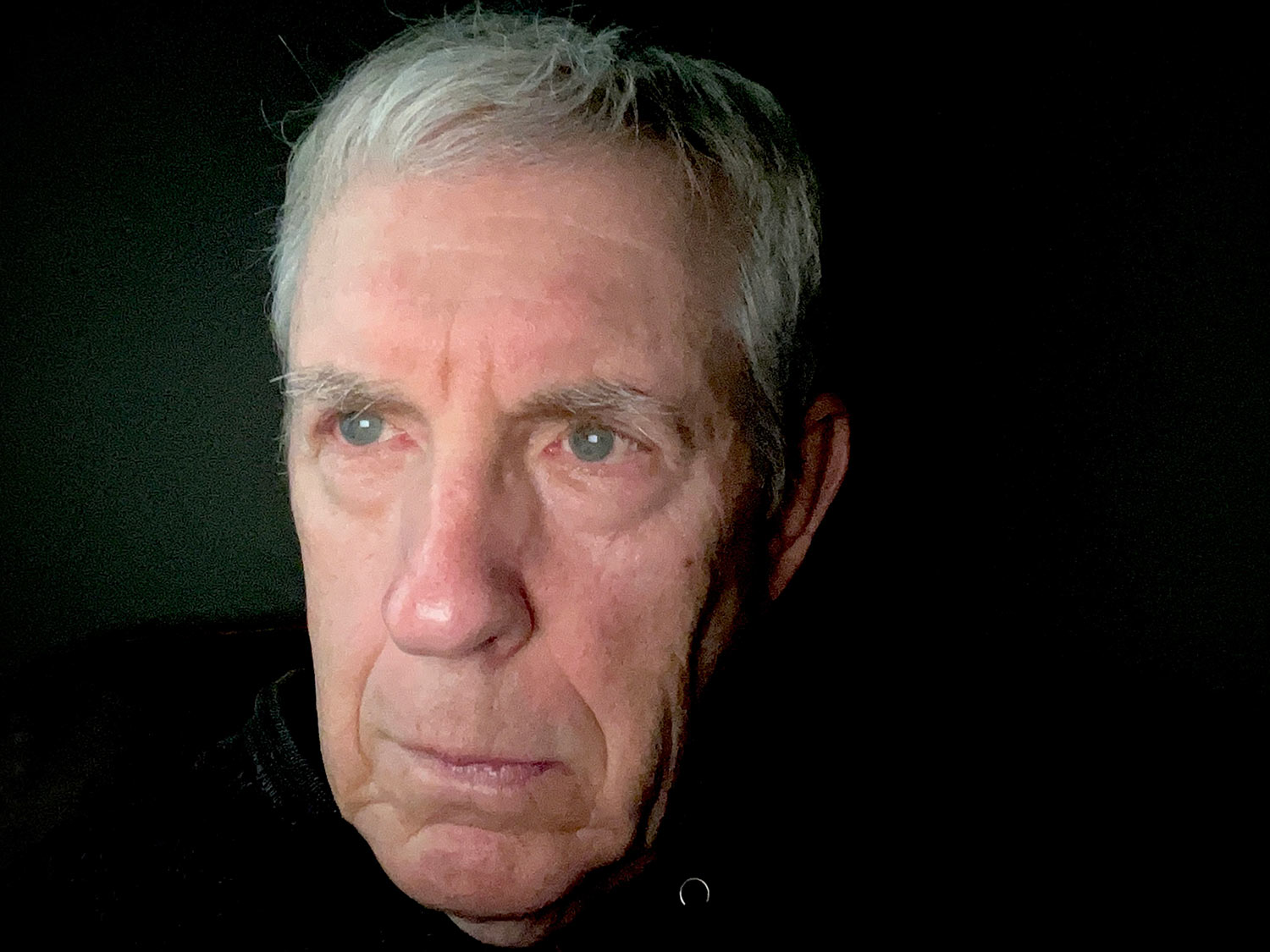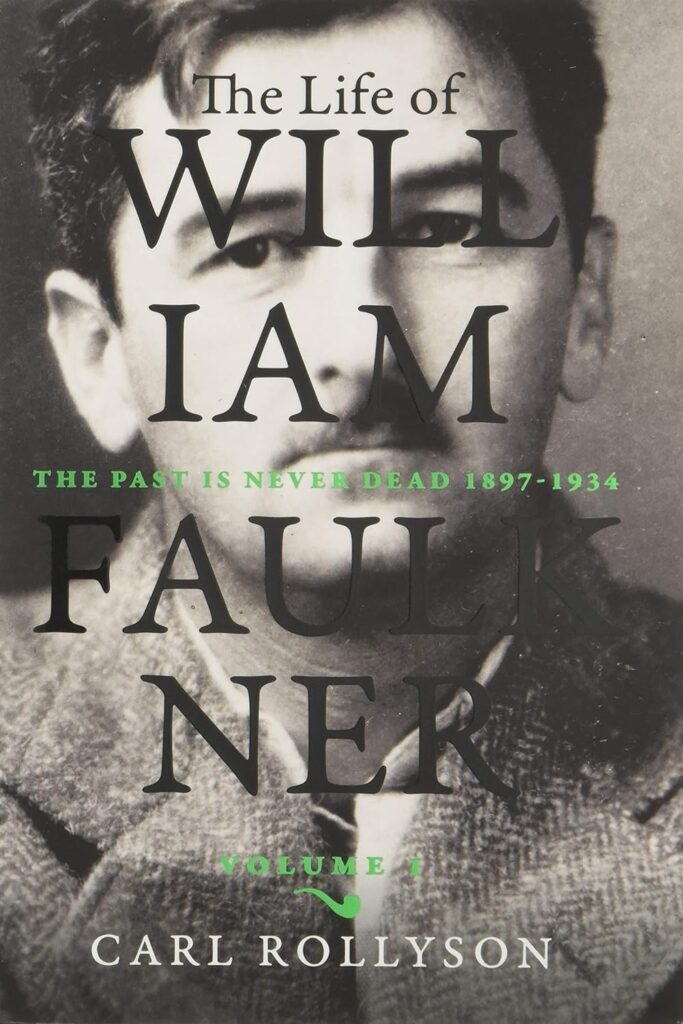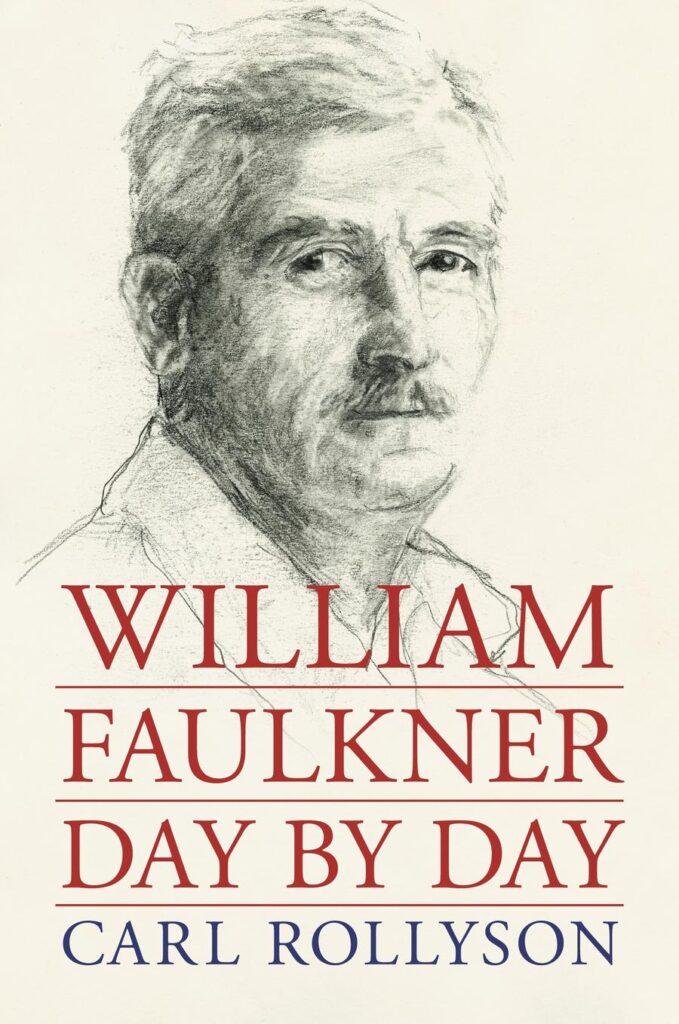In this episode of Biographers in Conversation, veteran American biographer Carl Rollyson chats with Gabriella about his two-volume biography of William Faulkner, a giant of literature who won the Pulitzer and Nobel prizes for some of the most innovative and enduring literature of the twentieth century.
The first volume: The Life of William Faulkner: The Past Is Never Dead is followed by The Life of William Faulkner: This Alarming Paradox. Carl also published William Faulkner Day by Day, which provides a unique insight into the minute of Faulkner’s daily life and relationships.
Carl Rollyson explains the meaning of the titles of the two volumes of his William Faulkner biography and why he chose to end Volume One in 1934. He also reveals how he orients Faulkner within the historical, social and cultural context in which he grew up and lived, and how he crafted a portrait of the whole human being by balancing Faulker’s professional and personal life with literary criticism. Carl discloses how he reconciled the contradictory aspects of Faulkner’s behaviour and why he wrote William Faulker Day by Day in present tense. He articulates his views on the role of a biographer and why he argues that Faulkner deserves to be reread as a literary figure and a still-relevant force, especially in relation to issues of race, sexuality and equality.
William Faulkner emerged from the ravaged South—half backwoods, half defeated empire—transforming his corner of Mississippi into the fictional Yoknapatawpha County and bestowing on the world some of the most revolutionary and enduring literature of the twentieth century. The personal story behind the work has fascinated readers nearly as much as the great novels, but Faulkner has remained elusive despite numerous biographies that have attempted to decipher his private life and his wild genius. In an ambitious biography that will encompass two volumes, Carl Rollyson has created a life of Faulkner for the new millennium.
Rollyson has drawn on an unprecedented amount of material to present the richest rendering of Faulkner yet published. In addition to his own extensive interviews, Rollyson consults the complete—and never fully shared—research of pioneering Faulkner biographer Joseph Blotner, who discarded from his authorised biography substantial findings in order to protect the Faulkner family. Rollyson also had unrivalled access to the work of Carvel Collins, whose decades-long inquiry produced one of the greatest troves of primary source material in American letters.
This first volume follows Faulkner from his formative years through his introduction to Hollywood. Rollyson sheds light on Faulkner’s unpromising, even bewildering youth, including a gift for tall tales that blossomed into the greatest of literary creativity. He provides the fullest portrait yet of Faulkner’s family life, in particular his enigmatic marriage, and offers invaluable new insight into the ways in which Faulkner’s long career as a screenwriter influenced his iconic novels.
Integrating Faulkner’s screenplays, fiction, and life, Rollyson argues that the novelist deserves to be reread not just as a literary figure but as a still-relevant force, especially in relation to issues of race, sexuality, and equality. The culmination of years of research in archives that have been largely ignored by previous biographers, The Life of William Faulkner offers a significant challenge and an essential contribution to Faulkner scholarship.
By the end of volume one of The Life of William Faulkner, the young Faulkner had gone from an unpromising, self-mythologising bohemian to the author of some of the most innovative and enduring literature of the century, including The Sound and the Fury and Light in August. The second and concluding volume of Carl Rollyson’s ambitious biography finds Faulkner lamenting the many threats to his creative existence. Feeling, as an artist, he should be above worldly concerns and even morality, he has instead inherited only debts—a symptom of the South’s faded fortunes—and numerous mouths to feed and funerals to fund. And so he turns to the classic temptation for financially struggling writers—Hollywood.
Thus begins roughly a decade of shuttling between his home and family in Mississippi—lifeblood of his art—and the backlots of the Golden Age film industry. Through Faulkner’s Hollywood years, Rollyson introduces such personalities as Humphrey Bogart and Faulkner’s long-time collaborator Howard Hawks, while telling the stories behind films such as The Big Sleep and To Have and Have Not. At the same time, he chronicles with great insight Faulkner's rapidly crumbling though somehow resilient marriage and his numerous extramarital affairs--including his deeply felt, if ultimately doomed, relationship with Meta Carpenter. (In his grief over their breakup, Faulkner—a dipsomaniac capable of ferocious alcoholic binges—received third-degree burns when he passed out on a hotel-room radiator.)
Where most biographers and critics dismiss Faulkner’s film work as at best a necessary evil, at worst a tragic waste of his peak creative years, Rollyson approaches this period as a valuable window on his artistry. He reveals a fascinating, previously unappreciated cross-pollination between Faulkner’s film and literary work, elements from his fiction appearing in his screenplays and his film collaborations influencing his later novels—fundamentally changing the character of late-career works such as the Snopes trilogy.
Rollyson takes the reader on a fascinating journey through the composition of Absalom, Absalom!, widely considered Faulkner’s masterpiece, as well as the film adaptation he authored—unproduced and never published— Revolt in the Earth. He reveals how Faulkner wrestled with the legacy of the South—both its history and its dizzying racial contradictions—and turned it into powerful art in works such as Go Down, Moses and Intruder in the Dust.
Volume Two of this monumental work rests on an unprecedented trove of research, giving us the most penetrating and comprehensive life of Faulkner and providing a fascinating look at the author's trajectory from under-appreciated "writer's writer" to world-renowned Nobel laureate and literary icon. In his famous Nobel speech, Faulkner said what inspired him was the human ability to prevail. In the end, this beautifully wrought life shows how Faulkner, the man and the artist, embodies this remarkable capacity to endure and prevail.
William Faulkner has been the topic of numerous biographies, papers, and international attention. Yet there are no collected resources providing a comprehensive scope of Faulkner’s life and work before now. William Faulkner Day by Day provides unique insight into the daily life of one of America’s favourite writers. Beyond biography, this book is an effort to recover the diurnal Faulkner, to write in the present tense about past events as if they are happening now. More importantly, this book is concerned with more than the writer’s life. Instead, it examines the whole man—the daily, mundane, profound, life changing, and everything in between.
Spanning from the 1825 birth of Faulkner’s great-grandfather to Faulkner’s death 137 years later, Carl Rollyson presents for the first time a complete portrait of Faulkner’s life untethered from any one biographical or critical narrative. Presented as a chronology of events without comment, this book is accompanied by an extensive list of principal personages and is supported by extensive archival research and interviews. Populated by the characters of Faulkner’s life—including family and friends both little known and internationally famous—this book is for Faulkner readers of all kinds with a wide variety of interests in the man and his work.

Carl Rollyson, Professor Emeritus at Baruch College, The City University of New York, has published numerous biographies of literary figures such as Sylvia Plath, Susan Sontag, and Norman Mailer, as well as film icons Marilyn Monroe and Dana Andrews. His writing has appeared in theWall Street Journal, the New Criterion, and the Washington Post.






